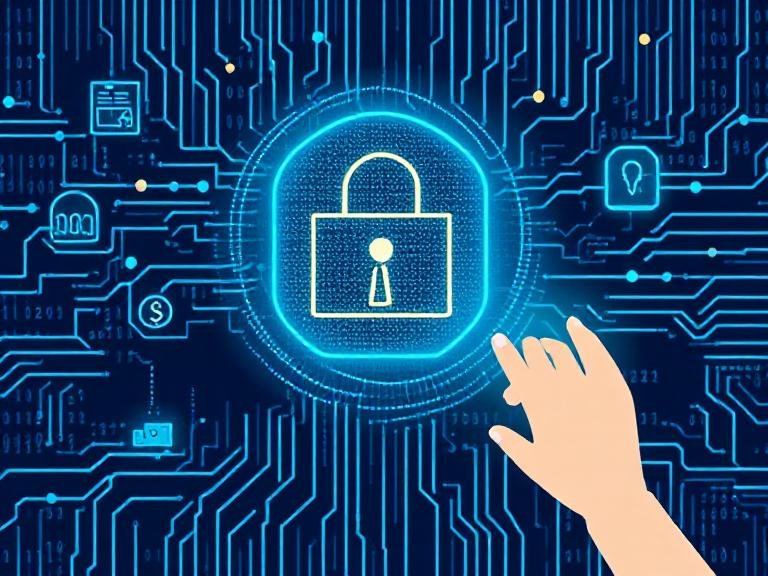Is Your Data Really Safe? 8 Must-Ask Questions Before Hiring a Cybersecurity Vendor

Is Your Data Really Safe? 8 Must-Ask Questions Before Hiring a Cybersecurity Vendor
Let’s cut to the chase: handing your company’s security over to an MSP or ITSP doesn’t mean you’re automatically safe.
In fact — if you picked the wrong one, or never checked what they’re actually doing — you might be more vulnerable than if you handled it yourself.
Yes, a good MSP can be your digital guardian angel: patching holes, training your team, stopping ransomware before it strikes.
But a lazy, checkbox-ticking vendor? They’re just giving you a false sense of security — and that’s more dangerous than no security at all.
So how do you know if your provider is legit?
Here are 8 non-negotiable best practices every cybersecurity vendor should be doing — and how to verify they’re actually doing them.
🛡️ Why Your MSP’s Security Habits Are Your Business’s Lifeline
Think of your MSP like a building’s security guard.
You don’t just hire them and forget about it. You check:
→ Are they patrolling?
→ Are the locks working?
→ Are they updating the alarm system?
Same goes for cybersecurity.
A solid MSP doesn’t just “monitor servers.” They:
→ Block phishing emails before they hit inboxes.
→ Train your remote team to spot scams.
→ Install firewalls, update antivirus, and lock down endpoints.
→ And most importantly — they don’t wait for disaster to act.
But none of that matters if they’re cutting corners.
That’s why you need to vet them — hard.
✅ The 8 Best Practices Your Cybersecurity Vendor MUST Be Doing
1. They Enforce Multi-Factor Authentication — Everywhere
Passwords alone? That’s 2010 thinking.
If your vendor isn’t forcing MFA (Multi-Factor Authentication) on every account — email, servers, cloud apps — they’re leaving your front door wide open.
✅ What to ask:
“Is MFA required for all users — including admins and third-party tools?”
Real MFA = password + something else (app code, fingerprint, hardware key).
No excuses. No exceptions.
2. They Patch Like Their Job Depends On It (Because It Does)
Hackers don’t invent new magic attacks.
They exploit known holes in old software — holes that patches fix.
If your MSP isn’t applying updates within days (not months) of release — they’re gambling with your data.
✅ What to ask:
“What’s your patching schedule? How do you handle critical updates?”
Look for: automated patching, documented timelines, and emergency protocols.
3. They Run Real Cybersecurity Audits — Not Just Paperwork
Audits aren’t about compliance theater. They’re about finding scary stuff like:
→ Former employees who still have access.
→ Admin accounts with no IP restrictions.
→ RDP ports left wide open to the internet.
Good MSPs either run these audits themselves — or hire independent third parties to do it honestly.
✅ What to ask:
“When was our last access audit? Can I see the report?”
If they hesitate — red flag.
4. They Keep Off-Site, Offline Backups (Not Just “In the Cloud”)
Ransomware doesn’t just encrypt your files — it hunts down your backups too.
If your “backup” lives on the same network or cloud account? It’s useless when you need it most.
✅ What to ask:
“Where are our backups stored? Are any of them offline and air-gapped?”
You want backups that:
→ Live in a separate physical location.
→ Are disconnected from the network.
→ Only a few trusted people can access.
This isn’t paranoia. It’s survival.
5. They Monitor Logs — Not Just Collect Them
Logs are useless if nobody reads them.
A serious MSP uses SIEM tools (Security Information & Event Management) to:
→ Spot weird login attempts.
→ Detect data exfiltration.
→ See attack patterns before they blow up.
✅ What to ask:
“What SIEM or log monitoring tools do you use? How often do you review alerts?”
If they say “we store logs for compliance,” run. You need active monitoring — not a digital paper trail.
6. They Test Your Team With Fake Phishing Emails
Let’s be honest: your biggest vulnerability isn’t your firewall — it’s Dave in accounting clicking “Download Invoice.”
Good MSPs run fake phishing campaigns to:
→ See who clicks.
→ Train the clickers.
→ Measure improvement over time.
✅ What to ask:
“When was our last phishing test? What was the click rate? What training followed?”
If they’ve never done one — your team is flying blind.
7. They Vet Every Piece of Software — Especially the “Small” Ones
That cute browser plugin? The free PDF tool? The “harmless” Chrome extension?
Hackers love them — because nobody checks them.
Your MSP should:
→ Review every app’s security posture before you install it.
→ Block sketchy downloads.
→ Keep endpoint protection updated — everywhere.
✅ What to ask:
“How do you evaluate third-party software before we use it?”
If they shrug — you’re one free plugin away from disaster.
8. They Set Alerts — And Document Everything
Security isn’t “set and forget.” It’s “watch, react, record, repeat.”
Your MSP should:
→ Get instant alerts for suspicious activity (failed logins, config changes, etc.).
→ Automatically open tickets — no manual digging.
→ Keep updated runbooks for breaches, ransomware, outages.
✅ What to ask:
“Can I see our incident response plan? How often is it updated?”
No documentation = no plan = panic when things go wrong.
🚨 Bottom Line: Don’t Assume — Verify
Digital tools make business easier.
But they also make you a target.
Your MSP isn’t just a “tech support” vendor — they’re your first line of defense.
And if they’re not doing these 8 things? You’re not protected. You’re exposed.
Don’t wait for a breach to find out.
👋 Not Sure If Your Vendor Measures Up? Let’s Talk.
If you’re nodding along thinking, “Hmm… I’m not sure our MSP does half of this…” — you’re not alone.
We offer a free, no-pressure 15-minute chat to:
→ Review your current vendor’s practices
→ Spot the biggest gaps (usually 2–3 critical ones)
→ Suggest your next steps — whether it’s demanding changes or finding a better partner
No sales pitch. No jargon. Just honest, actionable advice.
Because your data — and your reputation — are too important to leave to chance.




